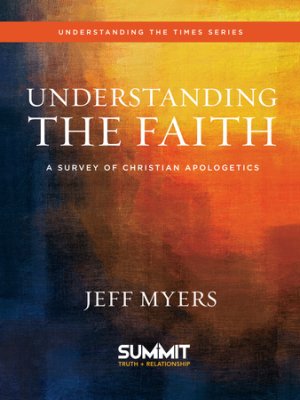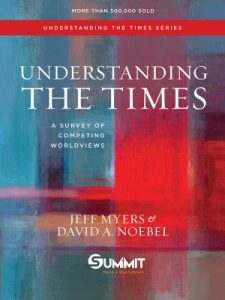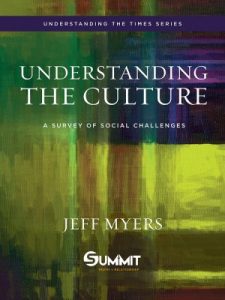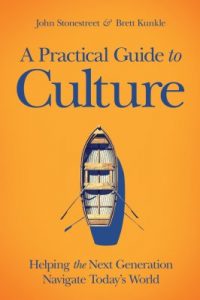Shaping Culture
This Sunday School class on Shaping Culture addresses the important and fast-moving cultural issues of our day. It is based on the Biblical Worldview and covers issues such as technology, gender identity, marriage, sanctity of human life, abortion, religious freedom, and poverty, etc. We are challenged to ask: How can an authentic Biblical Worldview provide a compassionate, effective witness in culture today? What is culture? Why does our culture matter? This class provides practical ways to understand, engage, and shape the culture in which we live. It will help Christians apply the beliefs that we hold as truths and engage with the significant issues of our culture according to our Christian Worldview. We address issues such as: how Christians can think, speak, and communicate clearly, how we can care for God’s creation, how we can care for those living in poverty, and how we can influence the culture. The class lessons cover the following:
- What is Culture?
- Our Biblical Mandate
- The Rights Fight
- A History of Christianity and Culture
- A Plan for Christianity and Culture
- Technology
- The Arts and Entertainment
- Sanctity of Human Life
- Sexuality
- Marriage
- Creation Care
- Politics
- Religious Freedom and Persecution
- Poverty Care and Cure
- The Use of Force
- Justice
- Conclusions
Lesson content is determined by our biblical mandate to understand, engage, and shape culture and is heavily influenced by these three sources:
- The book Understanding The Culture by Dr. Jeff Myers, President of Summit Ministries in Manitou Springs, CO.
- The book A Practical Guide to Culture by John Stonestreet, President of the Colson Center for Christian Worldview, and Brett Kunkle, Student Impact Director at Stand To Reason.
- The Creation Apologetics Teachers College (CATC) course by Mike Riddle, President of Creation Training Initiative in Boise, ID.
Information from other books covering similar issues, but perhaps addressed to different audiences, is referenced as appropriate.
Primary Source Details:
The course material is largely based on two books and a few select chapters of the CATC course, all recently published in 2017.
- Understanding The Culture (2017), Dr. Jeff Myers, President of Summit Ministries in Manitou Springs, CO. It is the third book in the Understanding The Times series. The book provides a survey of social challenges that we face and shows believers how to transform culture. Understanding the Culture answers questions (such as – What is culture? Why does our culture matter?) and provides practical ways to understand, engage, and influence the culture in which we live. It will help Christians apply the beliefs that we hold as truths and engage with the significant issues of our culture according to our Christian Worldview. Cultural issues addressed include:
- Technology
- The Arts and Entertainment
- The Value of Human Life
- Sexuality
- Marriage
- Creation Care
- Politics
- Religious Freedom and Persecution
- Poverty Care and Cure
- The Use of Force
- Justice
- A Practical Guide to Culture (2017), John Stonestreet and Brett Kunkle. John is President of the Colson Center for Christian Worldview and BreakPoint Radio Co-Host in Colorado Springs, CO. He is a respected authority on worldview, culture, and education. Brett Kunkle is the student impact director at Stand To Reason. The book helps the next generation navigate today’s world. Cultural issues addressed include:
- Pornography
- The Hookup Culture
- Sexual Orientation
- Gender Identity
- Affluence and Consumerism
- Addiction
- Entertainment
- Racial Tension
- Creation Apologetics Teachers College (CATC) course by Mike Riddle, President of Creation Training Initiative in Boise, ID. The five-day course is designed to provide 1) knowledge of God’s creation, origins science and apologetics, 2) communication, teaching, organizational, and critical thinking skills, and 3) how to answer questions and challenges. Issues related to culture include:
- Discernment and the emergent church movement
- Sanctity of human life
- Biblical marriage
- Moral argument for God
- The rights fight
- War between two worldviews
Understanding The Times series:
The two other books in the Understanding The Times (UTT) series provide the foundation for our understanding of the culture we live in. They are:
- Understanding The Times (2015), Dr. Jeff Myers & Dr. David Noebel, Founder of Summit Ministries. The Understanding the Times book is the first book written in the UTT series and is a landmark guide to understanding the ideas and forces shaping our times. It offers a fascinating, comprehensive look at how the tenets of the Christian Worldview compares with the five major competing worldviews of our day: Islam, Secular Humanism, Marxism, New Age, and Postmodernism. Understanding the Times is a systematic way to understand the ideas that rule our world. While the material is expansive, the engaging, easy-to-understand writing style invites you to discover the truths of God — and our world. This classic should be on the shelf of every Christian home, on the desk of every pastor, and in the hands of every Christian student headed off to college.
- Understanding The Faith (2016), Dr. Jeff Myers. The first volume in the Summit Worldview Library, Understanding the Faith is an apologetics handbook that lays the foundation for a Christian Worldview by showing how the Bible is both authoritative and true. The understanding of absolute, objective truth has been largely lost. Spend just a few minutes discussing politics or religion and you’ll hear responses like, “There is no truth!” or “That may be true for you, but not for me.” Understanding the Faith dares to wade into the middle of the controversy with chapters such as:
- Is God Christian?
- Isn’t Claiming Truth Intolerant?
- Is the Bible Anti-Science?
- Why Is There Evil and Suffering?
Other References:
Information from other books covering similar issues, in some cases addressed to different audiences, is referenced as appropriate. Here are some of those books:
- A Summit Reader (2007), Essays and lectures in honor of Dr. David Noebel‘s (Founder of Summit Ministries) 70th birthday. Cultural issues addressed include:
- What’s wrong with moral relativism? Francis Beckwith
- Radical environmentalism, Calvin Beisner
- Engaging popular culture, Chuck Edwards
- Pro-life 101, Scott Klusendorf
- A critique of the worldview of scientific naturalism, J.P. Moreland
- Socialism, capitalism, and the Bible, Ronald Nash
- A Christian view of government, Wayne House
- Winning the battle for hearts and minds, Jeff Myers
- Right Thinking in a World Gone Wrong (2009), A biblical response to today’s most controversial issues. Essays by Dr. John MacArthur and the leadership team at Grace Community Church.
- No Retreats No Reserves No Regrets (2000), Why Christians should never give up, never hold back, and never be sorry when proclaiming their faith. Brannon Howse. Essays by nine apologists on biblical worldview, apologetics and culture.
- Ask Them Why (2007), Jay Lucas, Pastor and Theologian. Cultural issues addressed include:
- Animal rights
- Gay rights
- The Scandal of Evangelical Politics (2008), Dr. Ronald J. Sider, Director of the Sider Center on Ministry and Public Policy at Palmer Theological Seminary of Eastern University and President of Evangelicals for Social Action. Sider asks the question – why are Christians missing the chance to really change the world? This book suggests an approach for influencing the cultural issues of our day in a biblically grounded way. Cultural issues addressed include:
- The State: Its Nature, Purpose and Limits
- Justice
- Human Rights, Democracy, and Capitalism
- Sanctity of Human Life
- Marriage and Family
- Religious Freedom, Church, and State
- Peacemaking, Just War, and Nonviolence
- Creation Care
- Beyond Opinion (2008), Living the Faith That We Defend. Dr. Ravi Zacharias. Cultural topics covered include:
- Beyond opinion to conviction, Ravi Zacharias
- Broader cultural and philosophical challenges, Joe Boot
- Understanding and considering our challenges, Ravi Zacharias
- Pro Life Answers to Pro Choice Arguments (1992). Randy Alcorn.
- The Homosexual Agenda (2003), Exposing the Principal Threat to Religious Freedom Today. Alan Sears and Craig Osten.
- How Now Shall We Live? (1999), Charles Colson and Nancy Pearcey. Cultural issues addressed include:
- Worldviews in conflict
- Human life
- A Dance with Deception (1993), Revealing the truth behind the headlines by Charles Colson with Nancy Pearcey.
Lesson 1: Introduction
The class will be given over a period of TBD weeks. The contents will be presented with Powerpoint slides and one or two brief video clips on the subject matter covered in the lesson. References to relevant Scripture verses will be provided in each lesson. We will interact with the class members to solicit input and clarify issues that need further explanation. Although the book on Understanding the Culture will be the main reference book, we will also add information on common issues from the other books. It will not be possible to cover the subject matter in depth, but it will help to equip believers with enough knowledge on the cultural issues of our day that they will be able to understand, engage, and shape the culture from a Biblical Worldview perspective.
This is a battle between two different worldviews – Biblical (based on supernaturalism) and Secular (based on naturalism/materialism). This is similar to the battle between Creation and Evolution. The Secular Worldview is popular in our postmodern culture because of the belief in relativism – there is no such thing as absolute truth. We will look at each cultural issue using the following guideline:
- Biblical View of the Issue
- Secular View of the Issue Today
- Why Should Christians Care?
- What Should Christians Do?
- Conclusion
Foundations for this course:
For this course to be useful to believers, and to achieve its objective of shaping the culture, it would be helpful for you to be grounded in:
- The Word and in The Faith – e.g. Fundamentals of The Faith course
- The Biblical Worldview – e.g. Biblical Worldview course
- Apologetics – e.g. Christian Apologetics course and taking advantage of an Apologetics Forum-like program.
You will then be knowledgeable in, and can make a difference in, the culture of the day, thus achieving the objective of this Shaping Culture course. This also requires you to walk the talk to be effective in shaping the culture of our day.
Video clips:
- John MacArthur on Today’s Cultural Decline.
Lesson 2: What Is Culture?
In this lesson we define what we mean by culture and how that is defined by various Christian apologists.
Lesson 3: Our Biblical Mandate
etc.








